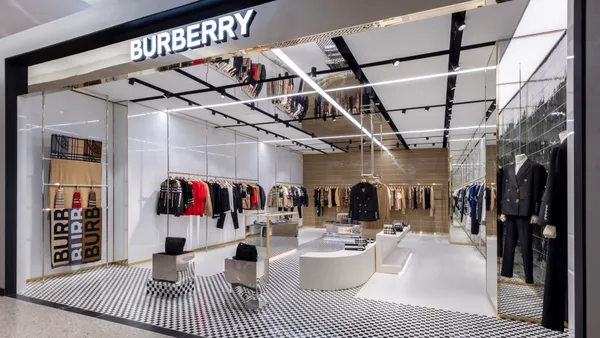Dive Brief:
- Vertically integrated apparel businesses are better positioned to win in the race to shorten lead times than their wholesaling competitors, according to a recent survey from McKinsey&Company.
- Since they don't have to sell their products to anyone other than the end consumer, lead times for vertically integrated companies are 36% faster (averaging 28 weeks) than "hybrid players" (average 44 weeks), which sell wholesale and direct to consumer.
- Researchers found vertically-integrated players also have faster design and development processes, spending an average of 11 weeks on these initial phases, compared to the 24 weeks on average of hybrid players — a finding McKinsey called "surprising."
Dive Insight:
The farther forward a prediction looks, the less accurate it is likely to be. That's why getting product from concept to market faster is actually a risk mitigation tactic for apparel supply chains, despite the sometimes increased cost.
McKinsey surveyed 54 apparel executives to find out what kinds of apparel businesses have been able to reap the benefits of a faster speed to market.
The risk of delivering a new product too slowly, according to McKinsey, is being behind the trend and out of sync with consumer desires, which can lead to markdowns and higher inventory levels. Along with getting trends to market faster, the study notes that speeding up the time it takes to get new product from concept to market can facilitate a correction if a trend or opportunity has been missed. Plus, a fast speed to market also puts more time between the last season or sales event and the next one, allowing for more data collection and better analysis.
It's for these reasons that apparel executives have reducing lead times at the top of their to-do list.
The survey found vertically integrated apparel businesses, like Kohl's for example, have faster lead times for new items across several development stages for one reason — fewer cooks in the kitchen. With no mid-process design feedback from wholesale customers and no "sell-in" period, retailers who also develop their own clothing lines are the lightest on their feet getting new product to market.
McKinsey also found speed to market correlates with price. Premium items, such as Burberry's wares, take the longest time from concept to market and value or discount items the shortest. The speed of discount players can be attributed to a faster design phase according to the survey, with design time averaging ten weeks but some of the "nimblest players" cutting it down to one week.
Speeding up and segmenting development processes so that teams are working on fewer collections at once also makes for faster results, according to the survey — adding to the thesis that a simpler supply chain is often a faster one.














